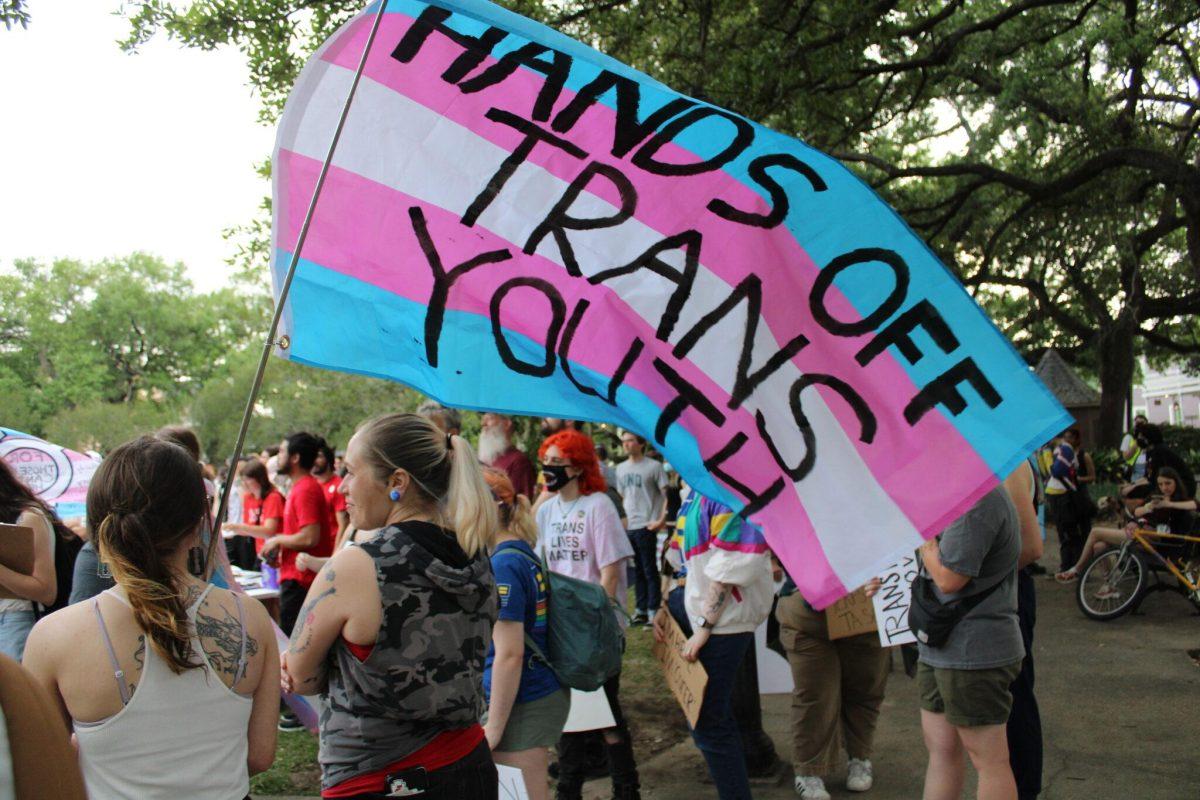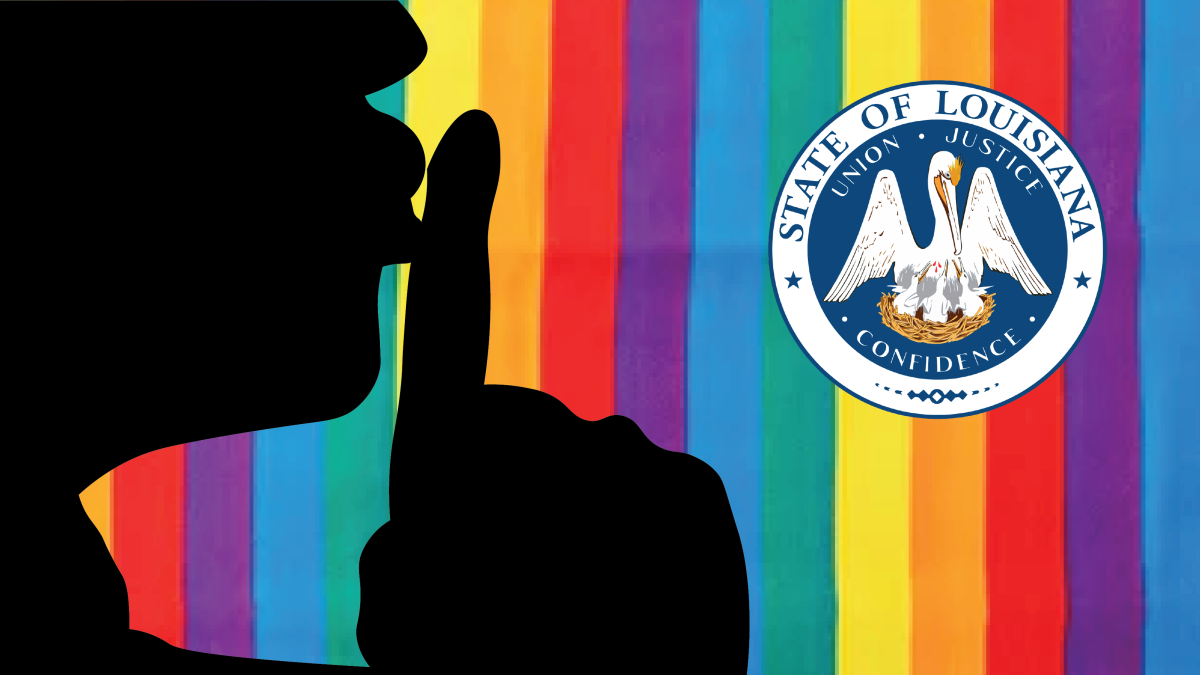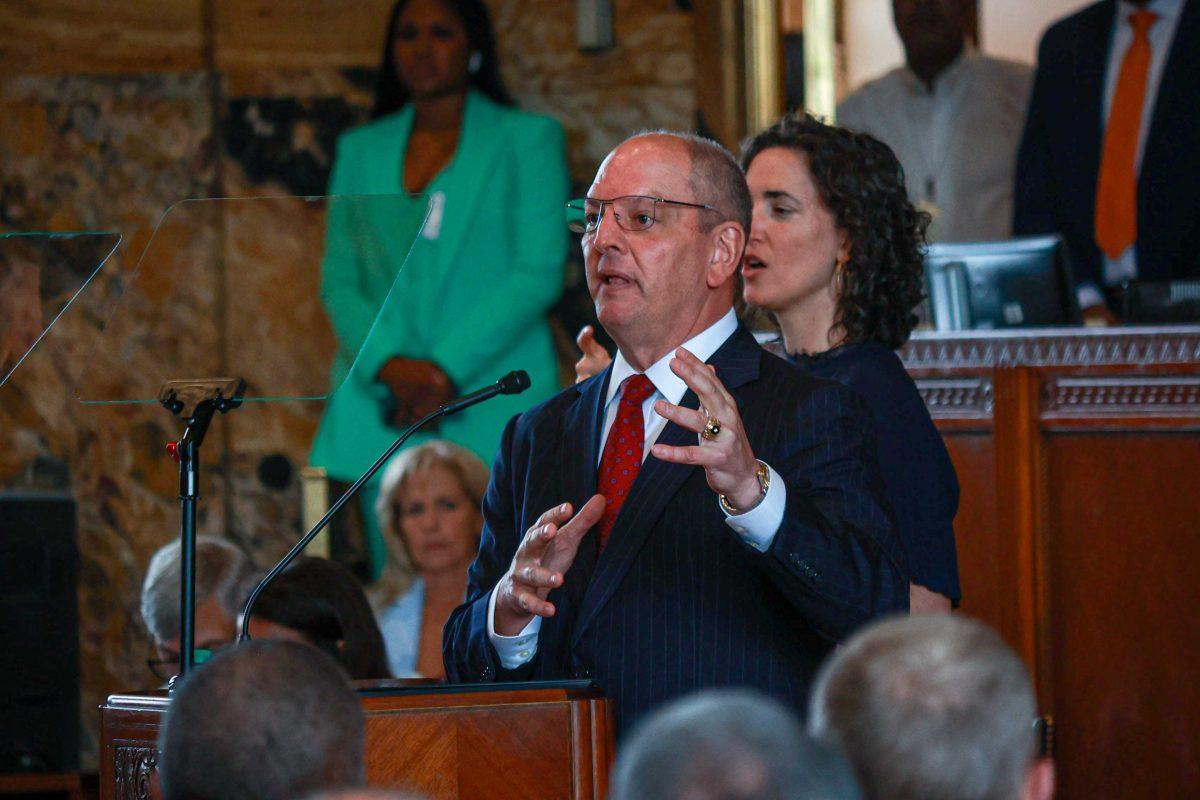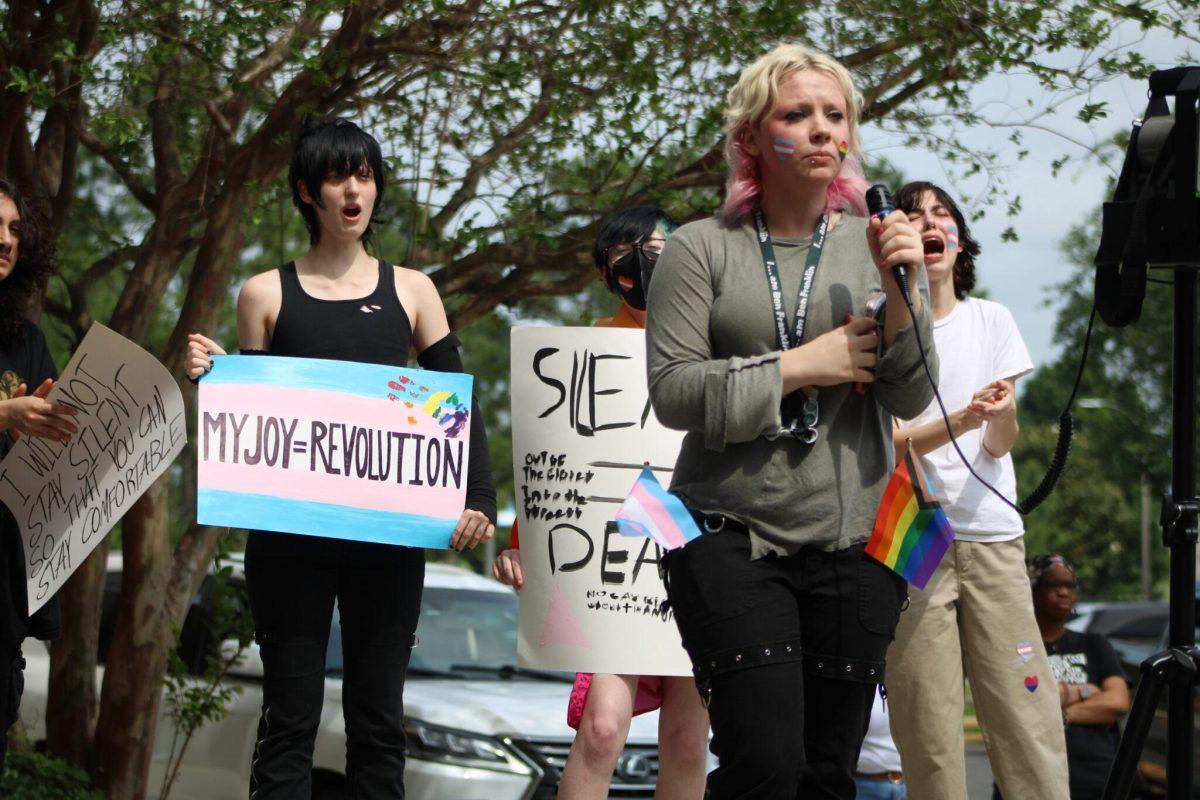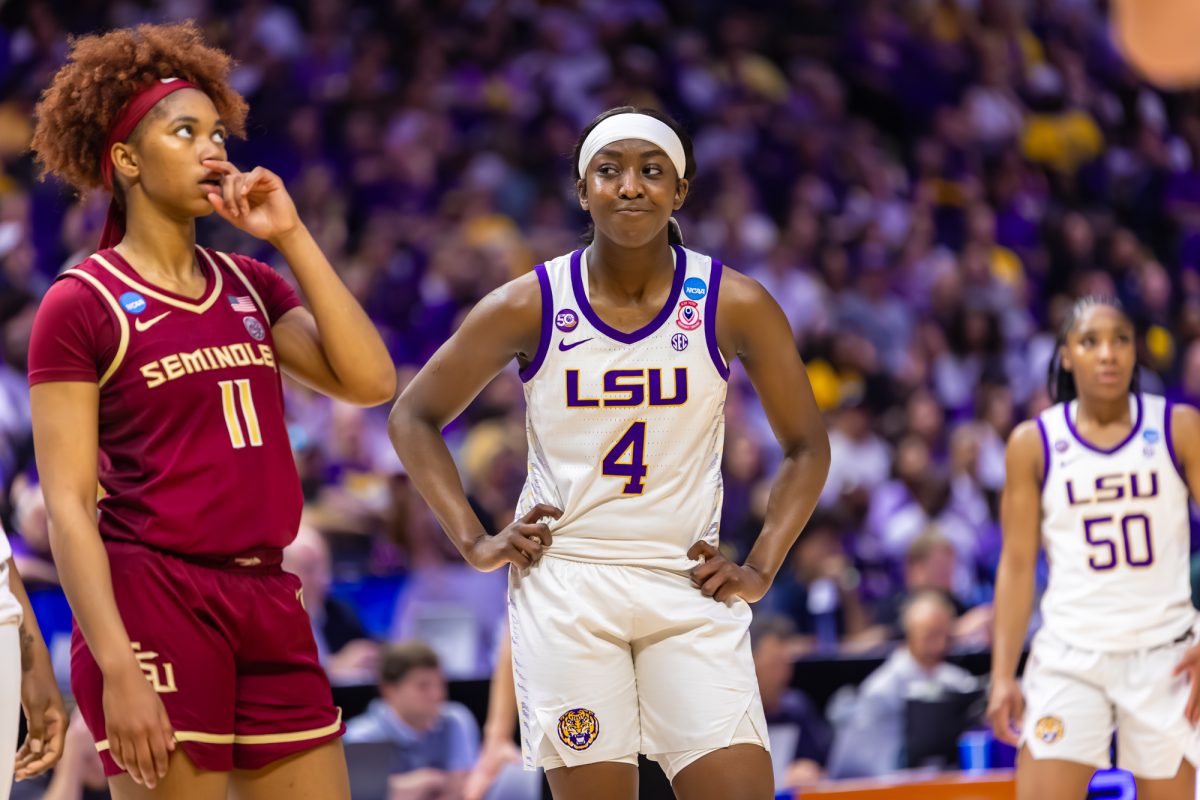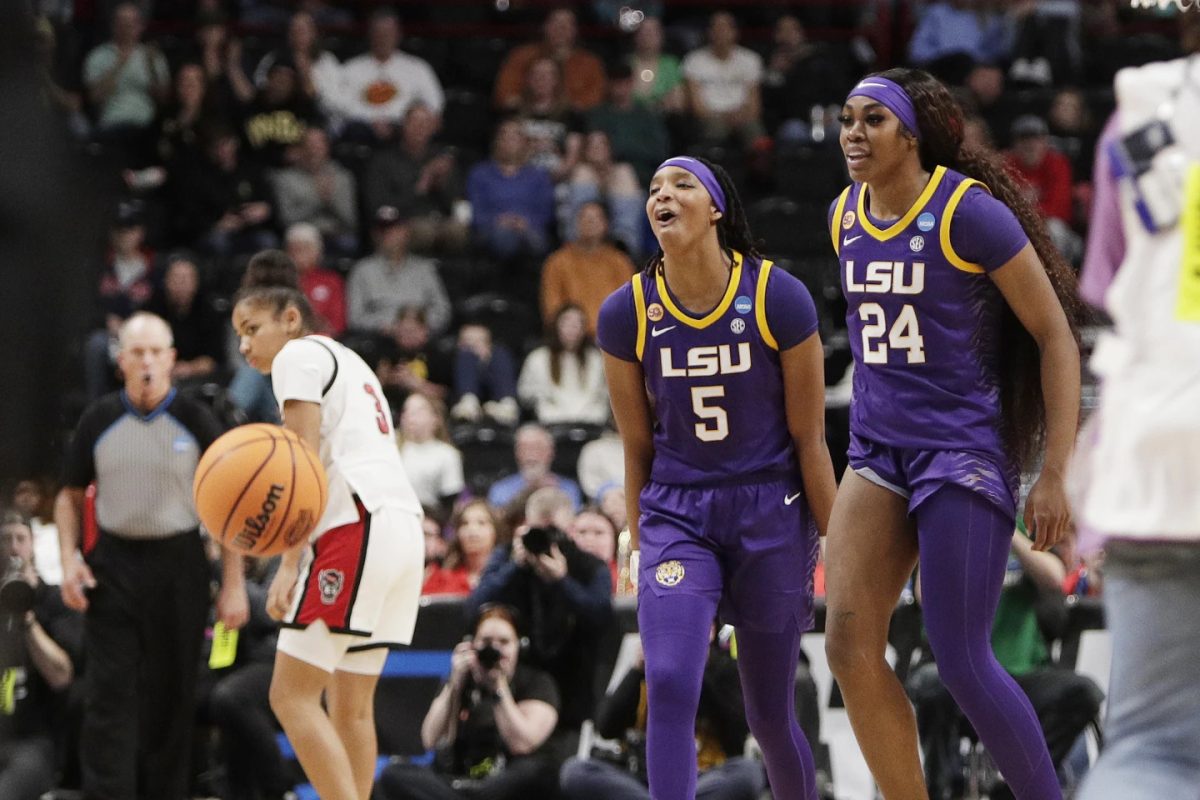It has been two weeks since President Donald Trump signed the “Keeping Men out of Women’s Sports” order and the transgender community is already experiencing its impact.
Signed on Feb. 5 before dozens of young female athletes and Louisiana politicians, by order of the White House, this executive order bars not only transgender women from participating in female sports but transgender men from competing men’s sports as well.
Following the signing, the NCAA aligned its policies to Trump’s standards, preventing transgender athletes from competing at the collegiate level.
However with less than ten openly transgender athletes in the NCAA, members of the transgender community have expressed that this policy has less to do with sports and more to do with attempting to intimidate the community as a whole.
“I think the real reason why he did it was not to do much in terms of the now,” former Louisiana Trans Advocates member Willow Lamphier said. “But rather to just put some more fear into the heart of the transgender Americans that are living in the US. It’s simple fear mongering.”
While Lamphier expressed that she understands how the difference in hormones between a transgender female and a cisgender female plays a part in the competition within sports, another concern that exists for her personally as a sports administration major is pursuing a career in sport media, an industry that has been found to be predominantly run by white men.
In 2021, ESPN reported that 79.2% of sports editors were white and 83.3% were men.
“Because sports is so cisgender, straight, male dominated. That’s really kind of scary to me,” she said. “I’m not gonna lie, and I think anyone who is trans in sports is scared enough.”
Lamphier was rendered speechless as she attempted to describe how conditions for transgender individuals pursuing sports have only worsened under the Trump administration.
In New Hampshire, Trump’s executive order is being argued against by two students, who are the first to challenge the order in court.
ESPN reported that it was ruled last fall by a New Hampshire federal judge that teenagers Parker Tarrell and Iris Turmelle could try out and play for their high school tennis and soccer teams as they work with GLAD Law to challenge the state ban that keeps transgender athletes from participating in their gender-aligning sport.
Now that the ban has been placed into an executive order, Tarelle and Turmelle’s families are working to list Trump and several cabinets like the U.S. Department of Education as defendants in their case.
“I love playing soccer and we had a great season last fall,” Tarell said in a statement. “I just want to go to school like other kids and keep playing the game I love.”
As the families continue to push their case to court, former trans athlete Carl Dexter shared with the Reveille his own thoughts on the situation, ones that align similarly to Lamphier’s.
“It’s more of an attack on the community and the beginning of a scary precedent that is being set,” Dexter said.
Dexter expressed that he feels that the president is painting an empathetic picture by victimizing young female athletes and telling the media that he is protecting them by something audiences know less about, the transgender community.
The political communications major has a long history with sports, playing basketball, soccer, baseball and competing for his swim and dive team where he fought for more transgender inclusive policy in his diving league.
Dexter feels that Trump’s policy is discriminating against the transgender community and is only the start of harming minorities in athletics.
“It’s transgender rights first, and then more broadly, LGBTQ rights. And, you know, gender and race inequalities whatnot,” he said. “It is moving in a direction towards removing rights, and it’s doing it slowly and methodically and intentionally in a way that people don’t care until it’s too late.”
Both Lamphier and Dexter commented on what this might mean for transgender youth and how they might face challenges as they transition and balance their love for sports.
“This is completely unfair to the young kids that will feel like they have to decide between themselves and their sport,” Dexter said.
“Let’s say someone in Tennessee who’s ten and realized they were trans and they want to play in sports, but now they can’t, solely because some, some guy in the Oval Office said so,” Lamphier said. “All we can do is hope that that ten year old in Tennessee gets to play sports one day because they want to.”



